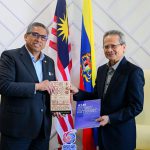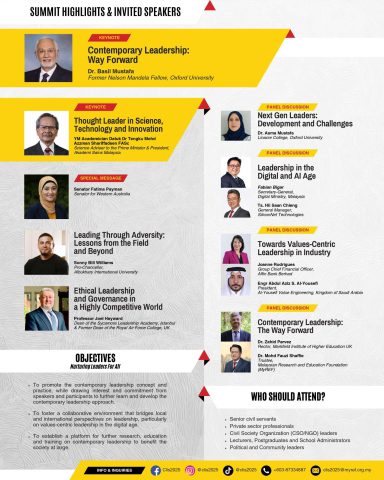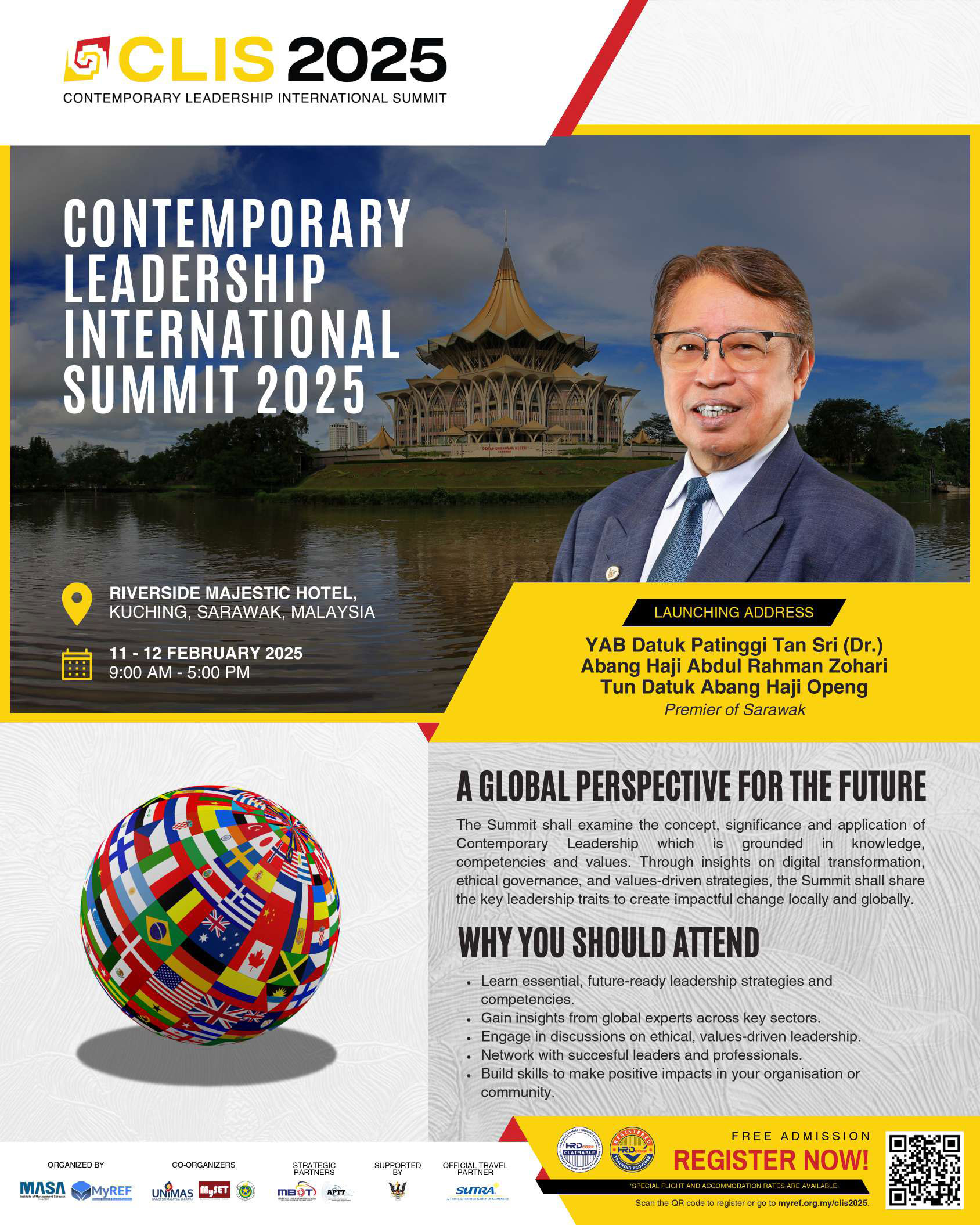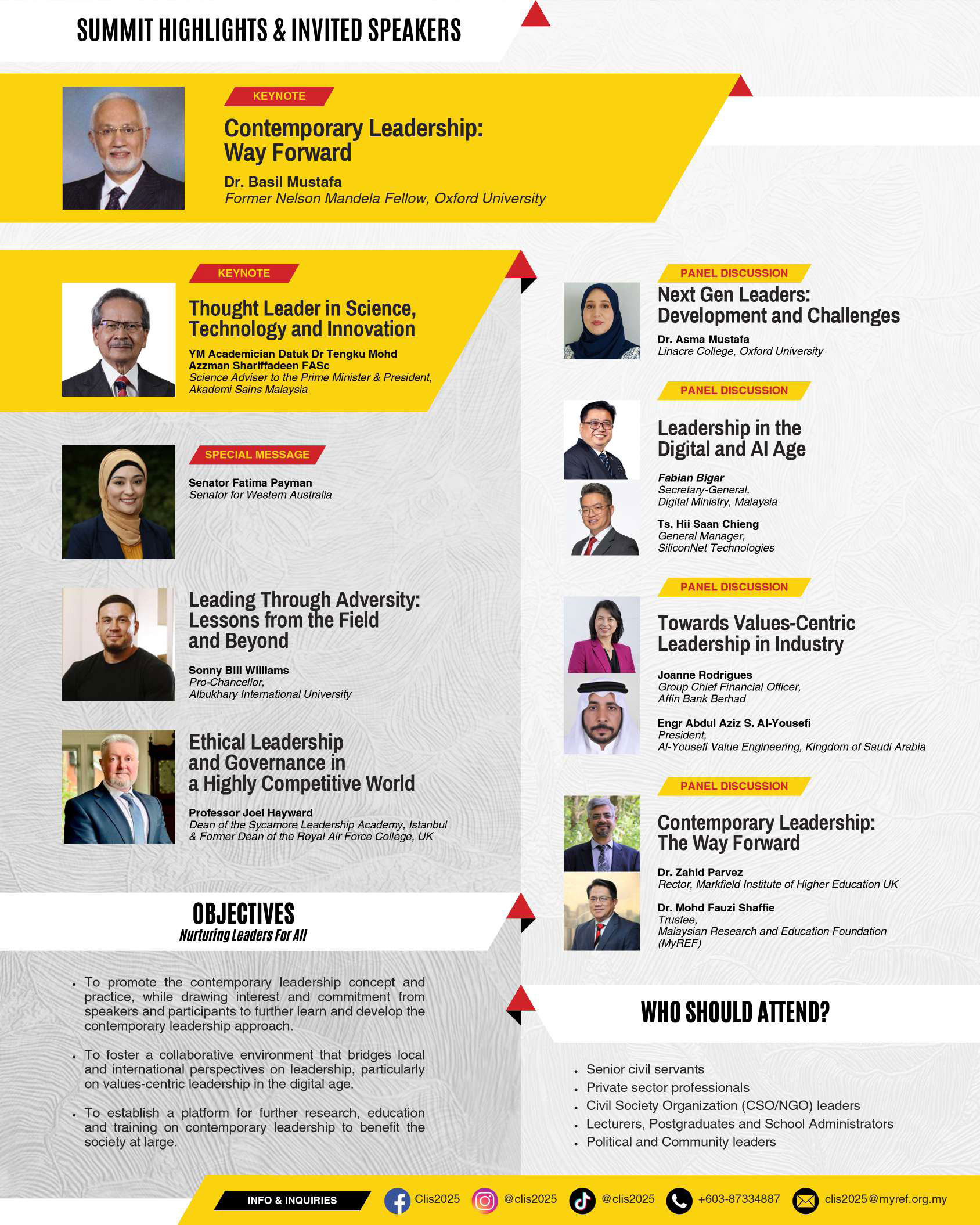
Courtesy Visit to the Chief Secretary to the Government
March 19, 2025
Malaysia Ignites Collaboration at ISC Global Knowledge Dialogue 2025
March 19, 2025On 11 February 2025, ASM President, Academician Datuk Dr Tengku Mohd Azzman Shariffadeen FASc, delivered his keynote at Contemporary Leadership International Summit (CLIS) 2025 entitled “Leadership Development in Science, Technology and Innovation”.
The Summit aimed to examine the concept, significance and application of Contemporary Leadership, which is grounded in knowledge, competencies and values. Through insights on digital transformation, ethical governance, and values-driven strategies, the Summit shared with its participants the key leadership traits to create impactful change locally and globally.
Firstly, Datuk Dr Tengku Mohd Azzman provided an overview of Malaysia’s standing in STIE. Malaysia’s STIE progress from 2010 to 2019 was unbalanced. Economic growth improved, but societal and environmental well-being declined, and the STIE ecosystem stagnated. He noted that despite ranking 33rd in the Global Innovation Index (GII) 2024, much of Malaysia’s research output has not translated into innovation. Therefore, he suggested that Malaysia strengthen its STIE ecosystem, enhance innovation capacity, and leverage home-grown knowledge and skills to create high-value products.
Next, Datuk Dr Tengku Mohd Azzman highlighted Malaysia’s key challenges in advancing its STIE ecosystem. Most researchers (87.5%) are in the public sector, limiting industry-driven innovation. Private sector research and development (R&D) investment remains low at 34.2% (in 2020), with national GERD at just 1%. He also noted that governance complexities hamper policy implementation, thus slowing progress.
In a rapidly changing world, Malaysia must shift from quick technocentric fixes to human- and humanity-centric solutions considering societal needs and planetary health. To make the shift, Datuk Dr Tengku Mohd Azzman stressed the importance of strengthening collaboration, increasing industry involvement, and fostering responsible innovation to build a resilient STIE ecosystem and drive future economic growth.
Datuk Dr Tengku Mohd Azzman noted that while Malaysia excelled in industrial production, the global shift towards a knowledge economy demands value creation over value extraction. As such, leaders must integrate STI into national development, foster collaboration, and break sectoral silos. To navigate a rapidly changing world, he emphasised that leadership must embrace innovation, adaptability, and systemic change to position Malaysia as a true knowledge-driven economy and society.
Datuk Dr Tengku Mohd Azzman believes that future-proof leadership in STIE requires a shift from traditional hierarchies to agile, human-centred, and decentralised models. He stated leadership is about aligning people, empowering them, and driving strategic renewal. By prioritising collective intelligence and interdisciplinary collaboration, Datuk Dr Tengku Mohd Azzman is confident that Malaysia can strengthen its STIE ecosystem and position itself as a global innovation leader.
In closing, Datuk Dr Tengku Mohd Azzman welcomed other organisations to join ASM in developing proactive and future-proof leadership to drive a thriving innovation ecosystem nationwide.



